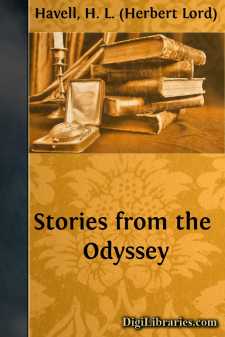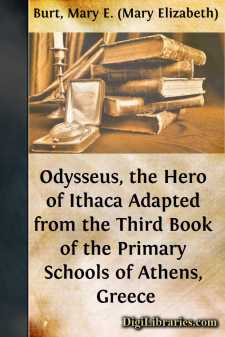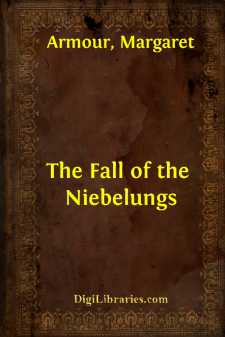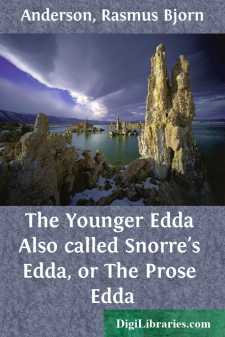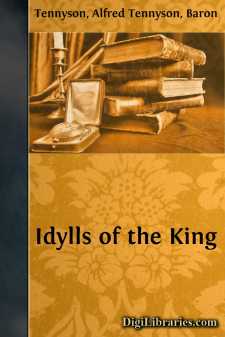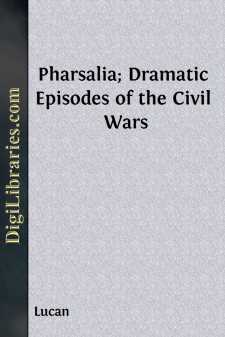Poetry
- American 96
- Ancient, Classical & Medieval
- Asian 15
- Australian & Oceanian 11
- Canadian 11
- Caribbean & Latin American 5
- Children's Poetry & Nursery rhymes 51
- Continental European 11
- English, Irish, Scottish, Welsh 162
- General 483
- Inspirational & Religious 7
- Middle Eastern 3
Ancient, Classical & Medieval Books
Sort by:
VENUS AND ADONIS EVEN as the sun with purple-colour'd faceHad ta'en his last leave of the weeping morn,Rose-cheek'd Adonis tried him to the chase;Hunting he lov'd, but love he laugh'd to scorn; 4Sick-thoughted Venus makes amain unto him,And like a bold-fac'd suitor 'gins to woo him. 'Thrice fairer than myself,' thus she began,'The field's chief...
more...
by:
Romesh Dutt
The scene of the Epic is the ancient kingdom of the Kurus which flourished along the upper course of the Ganges; and the historical fact on which the Epic is based is a great war which took place between the Kurus and a neighbouring tribe, the Panchalas, in the thirteenth or fourteenth century before Christ. According to the Epic, Pandu and Dhrita-rashtra, who was born blind, were brothers. Pandu died...
more...
by:
Lodovico Ariosto
This work is a continuation of the "Orlando Innamorato" of Matteo Maria Boiardo, which was left unfinished upon the author's death in 1494. It begins more or less at the point where Boiardo left it. This is a brief synopsis of Boiardo's work, omitting most of the numerous digressions and incidental episodes associated with these events: To the court of King Charlemagne comes Angelica...
more...
INTRODUCTION The impersonal character of the Homeric poems has left us entirely in the dark as to the birthplace, the history, and the date, of their author. So complete is the darkness which surrounds the name of Homer that his very existence has been disputed, and his works have been declared to be an ingenious compilation, drawn from the productions of a multitude of singers. It is not my intention...
more...
INTRODUCTION It has long been the opinion of many of the more progressive teachers of the United States that, next to Herakles, Odysseus is the hero closest to child-life, and that the stories from the "Odyssey" are the most suitable for reading-lessons. These conclusions have been reached through independent experiments not related to educational work in foreign countries. While sojourning in...
more...
by:
Margaret Armour
In old tales they tell us many wonders of heroes and of high courage, of glad feasting, of wine and of mourning; and herein ye shall read of the marvellous deeds and of the strife of brave men. There grew up in Burgundy a noble maiden, in no land was a fairer. Kriemhild was her name. Well favoured was the damsel, and by reason of her died many warriors. Doughty knights in plenty wooed her, as was meet,...
more...
PREFACE. In the beginning, before the heaven and the earth and the sea were created, the great abyss Ginungagap was without form and void, and the spirit of Fimbultyr moved upon the face of the deep, until the ice-cold rivers, the Elivogs, flowing from Niflheim, came in contact with the dazzling flames from Muspelheim. This was before Chaos. And Fimbultyr said: Let the melted drops of vapor quicken...
more...
by:
John Keats
PREFACE. Knowing within myself the manner in which this Poem has been produced, it is not without a feeling of regret that I make it public. What manner I mean, will be quite clear to the reader, who must soon perceive great inexperience, immaturity, and every error denoting a feverish attempt, rather than a deed accomplished. The two first books, and indeed the two last, I feel sensible are not of...
more...
And indeed He seems to me Scarce other than my king's ideal knight, 'Who reverenced his conscience as his king; Whose glory was, redressing human wrong; Who spake no slander, no, nor listened to it; Who loved one only and who clave to her—' Her—over all whose realms to their last isle, Commingled with the gloom of imminent...
more...
by:
Lucan
BOOK I THE CROSSING OF THE RUBICON Wars worse than civil on Emathian (1) plains,And crime let loose we sing; how Rome's high racePlunged in her vitals her victorious sword;Armies akin embattled, with the forceOf all the shaken earth bent on the fray;And burst asunder, to the common guilt,A kingdom's compact; eagle with eagle met,Standard to standard, spear opposed to spear. Whence, citizens,...
more...





